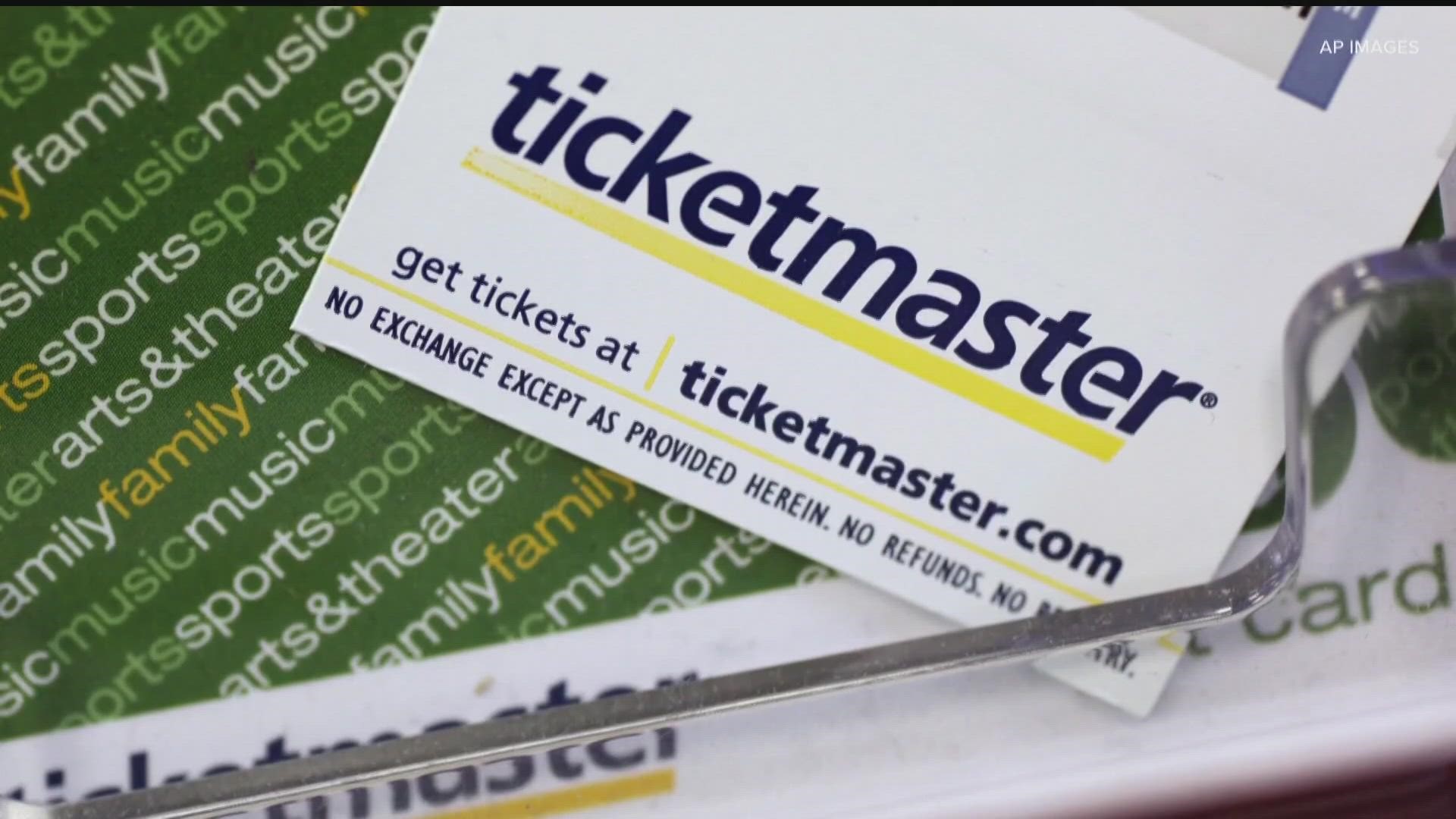WASHINGTON, D.C., USA — Senators grilled Ticketmaster Tuesday, questioning whether the company’s dominance in the ticketing industry led to its spectacular breakdown last year during a sale of Taylor Swift concert tickets.
U.S. Sen. Amy Klobuchar, a Minnesota Democrat, recalled piling into a friend's car in high school to go to concerts by Led Zeppelin, The Cars and Aerosmith. These days, she said, ticket prices and fees have gotten so high that shows are too expensive for many fans. Klobuchar said ticket fees now average 27% of the ticket cost, and can climb as high as 75%.
Klobuchar said Ticketmaster's market dominance means it faces little pressure to innovate and improve.
“To have a strong capitalist system, you have to have competition," Klobuchar said in a hearing of the Senate Judiciary Committee.
Ticketmaster is the world’s largest ticket seller, processing 500 million tickets each year in more than 30 countries. Around 70% of tickets for major concert venues in the U.S. are sold through Ticketmaster, according to data in a federal lawsuit filed by consumers last year.
In mid-November, Ticketmaster’s site crashed during a presale event for Swift’s upcoming stadium tour. The company said its site was overwhelmed by both fans and bot attacks. Many people lost tickets after waiting for hours in an online queue.
Ticketmaster required fans to register for the presale, and more than 3.5 million people did, a record for the company. Ticketmaster eventually canceled a planned ticket sale to the general public because it didn’t have enough inventory.
In 2010, Ticketmaster merged with Live Nation, a Beverly Hills, California-based entertainment company that produces live shows, festivals and concert tours.
Live Nation’s President and Chief Financial Officer Joe Berchtold apologized to fans and to Swift on Tuesday, and said the company knows it must do better.
But Berchtold insisted that Ticketmaster doesn't set prices or service fees for tickets or decide how many tickets will go on sale. Service fees are set by venues, he said; Live Nation only owns around 5% of U.S. venues, he said. He also said Ticketmaster has lost — not gained — market share since its merger with Live Nation.
Berchtold said the ticketing industry would like lawmakers to focus on the growing problem of ticket scalping and prohibit fraudulent practices, such as resellers offering tickets that haven't officially gone on sale yet. He also said the industry should be more transparent about pricing and fees.
Minnesota Swifties said they are glad lawmakers are asking tough questions.
Tommy To spent eight hours trying to get tickets for his girlfriend and friends.
"It was a massive headache," To said. "I feel like even to this day, I still get PTSD when I look at concerts that are being announced for Minneapolis or sporting events. I go back to Ticketmaster because it's the only official provider of those tickets."
In an interview with KARE 11, Sen. Klobuchar said she was proud of how the hearing went and hopes it will lead to further action.
"It was so bipartisan that if you closed your eyes, you wouldn't really know which side of the aisle was asking questions," said Sen. Klobuchar. "Number one, we gave the public a snapshot into what a monopoly really is. That's why it was really important to air this publicly, get the evidence for what we believe is the Justice Department investigation going on. And then finally, proposed legislation."

